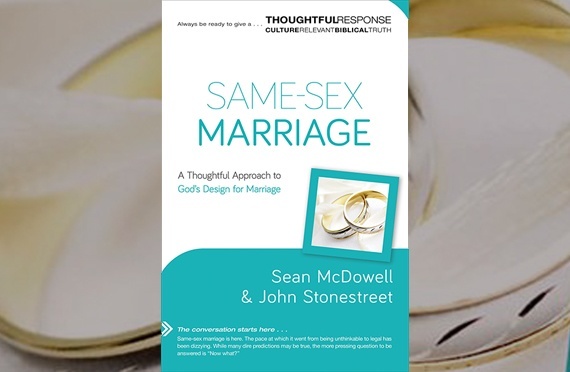“Bigoted. Hateful. Discriminatory.” Speak up for natural marriage, and you will inevitably get labeled with these words. Given how emotion-charged and personal this topic is, it’s easy to respond in turn. We suggest a different approach.
Focusing the Question
Our good friend Scott Klusendorf is often asked to debate pro-choice advocates. He often begins by saying: “We should allow abortions in all nine months of pregnancy.” At this point, all the pro-lifers who thought Scott was on their side are confused until he says the magic word “if.” “Abortion should be legal only if it can be demonstrated that the unborn are not members of the human family.”
Scott uses this rhetorical strategy because he understands how often emotional platitudes, clichés, and sound bites drown out the foundational issues that are at stake in our most important cultural debates. In the case of abortion, talking about women’s reproductive “rights” or pregnancies of unusual circumstance, although important, is often used as a red herring to prevent the main issue from ever being discussed: what is the unborn? Clarifying whether the unborn are human beings of equal worth and due dignity, in turn, clarifies the entire debate.
We suggest the same approach for marriage. The foremost issue is not inequality or discrimination, for those charges can be leveled only after we have answered a more basic question: what is marriage?
What Is Marriage?
From the perspective of our culture, marriage is simply a way the government acknowledges feelings of love and affection between people. But what if marriage has a deeper purpose than this?
Being in love certainly matters, and love and affection are among the greatest experiences humans have. But no one ever asked us about the sincerity of our love when we applied for our respective marriage licenses. Not one government official in the county clerk’s office asked, “Now wait a minute. Are you sure you are in love? Here, take this test in the latest Cosmopolitan magazine to prove you really love each other.” We were asked whether we were related to our fiancée and whether we were of the age of legal consent, but never how strongly we felt about our spouses.
Clearly, there is much that is already assumed about marriage in our society that is often overlooked in the current debates. The ways in which societies regulate marriage reveal a good bit about what we think (or at least used to think) marriage is. Marriage has a number of obvious and essential purposes that distinguish it as a relationship unique from all others. That’s why, before we decide who’s in and who’s out, and before we start leveling accusations of discrimination, we need to understand that the central question is, what is marriage?
Inequality
Defenders of natural marriage are often branded as being against equality.
Yet, ironically, few realize that equality is a Christian virtue. Even the notorious atheist philosopher Friedrich Nietzsche, in his book The Will to Power, recognized human equality as “another Christian concept” that “furnishes the prototype of all theories of equal rights.”
To deny equality to others where it is due would be a distinctly anti-Christian thing to do. But the only way to properly apply principles of equality to marriage is to first know what marriage is. After that, we can figure out which laws, ceremonies, and public policies best support the institution.
Discrimination
Discrimination is often considered a negative word. However, not all discrimination is bad. It’s often appropriate and necessary. Neither of us would be allowed to join a support group for single moms or to order McDonald’s coffee at the senior citizen price. That kind of discrimination isn’t arbitrary. It’s based on a set of essential qualifications that mothers and senior citizens have that we don’t. If, however, a stressed-out dads group refused to admit Sean because of his faux hawk hairstyle, or a McDonald’s refused to serve coffee to John because he’s balding, that would be arbitrary discrimination. And it would be wrong.
When it comes to marriage, the question is not whether discrimination is involved but what kind of discrimination it is. If it’s arbitrary discrimination, then denying same-sex couples the right to marriage would be immoral. But if it is essential discrimination, then keeping marriage as one man and one woman is the right thing to do. Regardless of how you answer this question, the issue can be settled only after we have first answered the question, what is marriage?
Conclusion
Our point in this article is not to defend marriage. We make a strong case for natural marriage in our book Same-Sex Marriage: A Thoughtful Approach to God’s Design for Marriage (Baker, 2014). The purpose of this article, however, is to help focus the issue on the most important question: what is marriage? It’s only when we properly focus the matter on the nature of marriage that we can effectively respond to secondary issues that cloud the debate.
Click here to get your copy of Same-Sex Marriage: A Thoughtful Approach to God’s Design for Marriage









